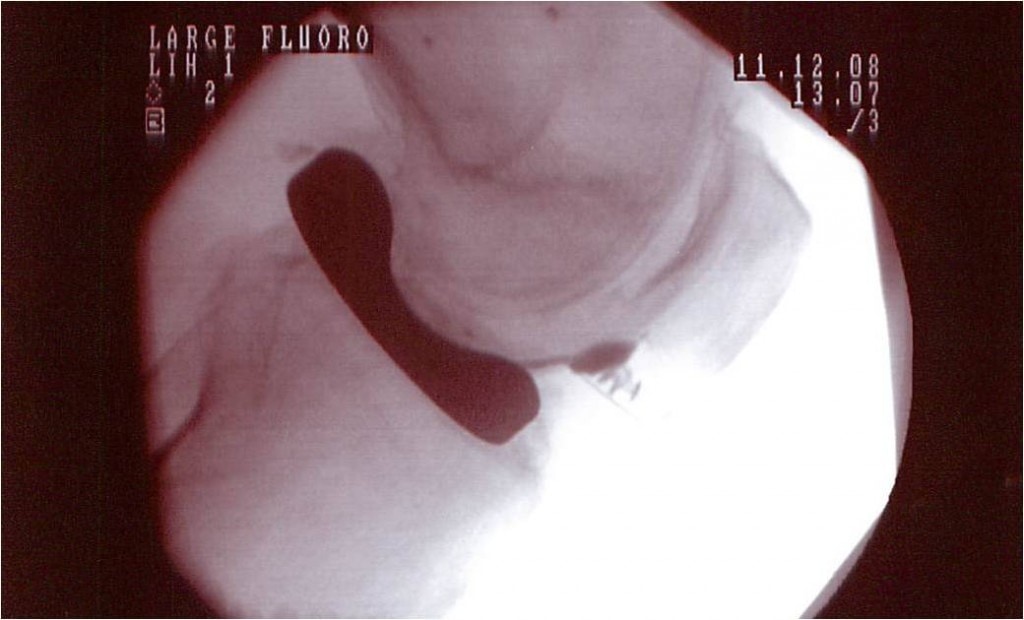17 Month Follow-up in a Patient with a Unispacer Implant
This is a quick follow-up on a then 60 year old patient (RH) with bilateral titanium unispacers that were placed several years before being considered for our procedure. This knee spacer system is very unique. Once one knee compartment has collapsed due to degeneration or surgical removal of the meniscus, it allows the surgeon to place a metal spacer that in effect replaces the original height of the meniscus. He initially did well, but over the years had return of disabling knee pain. RH was a high level racquetball player who finally had to give up playing. He was told the only remaining option left was a knee replacement. When we first evaluated him, we were uncertain about the impact of the unispacers on this procedure. In particular, he was a very big guy, and research had shown that wear particles from titanium implants could adversely impact mesenchymal stem cells. About a year and a half ago we injected his own stem cells into his knees. He needed one more booster shot 4 months later, as the first injection on one knee had likely too few cells. I spoke to him yesterday. He states that, “you fixed my knees”. He also states that they seem to be getting better and better each month. This last comment is interesting, as many cartilage procedures seem to have this kind of late procedural improvement, likely as cartilage matures and continues to integrate. We have seen this late improvement phenomenon in other patients as well.
This patient was treated with the Regenexx-C (cultured stem cell injections). Not all knee patients can expect to get these same results.
Originally published on

NOTE: This blog post provides general information to help the reader better understand regenerative medicine, musculoskeletal health, and related subjects. All content provided in this blog, website, or any linked materials, including text, graphics, images, patient profiles, outcomes, and information, are not intended and should not be considered or used as a substitute for medical advice, diagnosis, or treatment. Please always consult with a professional and certified healthcare provider to discuss if a treatment is right for you.

